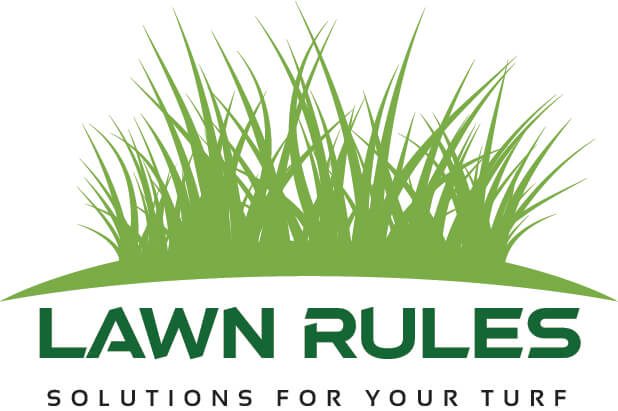Spartan Herbicides
Why use Spartan herbicides.
That is a very good question as we look at ways to have our lawns weed free 12 months of the year. If you choose Spartan herbicides it will persist in the soil and control susceptible weeds for up to six months after application. The level of control depends on the specific Spartan herbicide rate being applied to your lawn. Longevity meaning how long will Spartan herbicides prevent annual weeds (Summer & Winter).
-
Spartan Herbicide – Effect
The following will affect Spartan Herbicide longevity, soil physical and chemical properties, soil moisture levels, soil temperatures, as well as the species of turfgrass. Additionally, the type of herbicide formulation and uniformity of application also has a major influence on the level of control achieved.
Each year there are instances where for some reason we think pre-emergent herbicides fail to control weeds or injury occurs to certain turfgrasses. Why? Let’s examine the factors that will maximize the effectiveness of applying Spartan preemergence herbicide.
Application before germination Preemergence herbicides must be applied prior to weed seed germination including Spartan herbicides. The mode of action for Spartan preemergence herbicide is the inhibition of certain phases of cell division during the seed germination process. As the weed seed germinates, the herbicide is absorbed by the root or shoot, cell division is blocked, growth is inhibited and eventually the immature seedling dies.
Emerged weeds visible at the time of application are not controlled by Spartan herbicides. It is very important to either mix a post emergent herbicide in with Spartan Herbicide like Coliseum & Bow & Arrow herbicide to control any cool season grasses and broadleaf weeds. Germination factors of the weeds your targeting makes application timing critical with Spartan herbicide. The various species of crabgrass and summer grass are among the most troublesome annual grass weeds in turf.
-
Summer Benefits
Summer grass initiates spring germination when soil temperatures at a 100mm depth reach 14-15 degrees. Crabgrass/crows foot germinates at soil temperatures of 17-18 degrees. Because of higher temperature requirements for germination, Crabgrass/crows foot normally germinates two-to-six weeks later in spring than summer grass. The rule of thumb is to apply the Spartan herbicide two weeks before summer grass seed germination. However, recent research has shown that most preemergence herbicides can be applied in August and September and still provide high levels of summer grass / crabgrass control the following summer months.
Spartan Preemergence herbicide are degraded primarily by soil microorganisms. Degradation is higher under warm, moist soil conditions and lower under cool, dry soil conditions. The low activity of soil microorganisms involved in herbicide decomposition during the cold, winter months is a major reason why preemergence herbicides can be applied in August September several weeks in advance of crabgrass and summer grass seed germination and still provide high levels of control the following summer. Repeating application frequency also plays a role. Repeat applications have been shown to increase control of crabgrass and summer grass, particularly if soil seed populations of these species are high.
Tolerance considerations do remember turfgrass tolerance characteristics. When considering any herbicide, the first consideration is the tolerance of the desirable turfgrass species to the chemical in question. As a general rule, preemergence herbicides are not as phytotoxic to established turfgrass species as postemergence herbicides. Reference to the Spartan herbicide label will show recommended turfgrass species and time intervals that are required to prevent injury from time of any seeding and herbicide application date.
-
Summary
Spartan Herbicide is the right choice as a pre-emergent herbicide that can be used as an effective tool to help homeowners control annual weeds (Summer & Winter).
Spartan Herbicide selectivity is primarily through soil profile placement. Small-seeded plants take up greater amounts of the herbicide as they germinate in the soil profile zone of herbicide placement. Warm Season grasses can be less prone to root inhibition due to the fact they have a multiple fibrous root system, hence good even coverage and incorporation is required to ensure the weeds cannot recover by establishing roots outside the zone of herbicide activity.
Application should be prior to germination of the weeds as mentioned in this extensive article.
Poison Schedule – Non-Scheduled (Unscheduled)
- Features and Benefits
- Effective against all major annual grass weeds in turf during summer and winter
- Season-long control of annual weeds
- Reduces future weed set and germination
- Reduces the reliance on costly selective post-emergent herbicides
- Unscheduled (exempt from poison scheduling)
- Low odour formulation
- Minimises nutrient and sunlight competition from annual grasses
- Application compatibility with wetting agents
- Low odour formulation
- Economical solution for your main annual weed problems including African Lovegrass, Parramatta Grass, Summer Grass, Crab Grass, Crows foot Grass and Winter Grass
- Flexibility to delay wash-in for a few days if necessary
